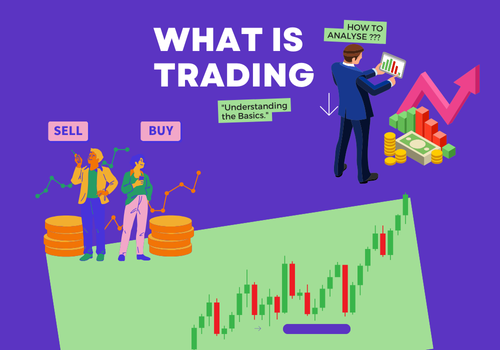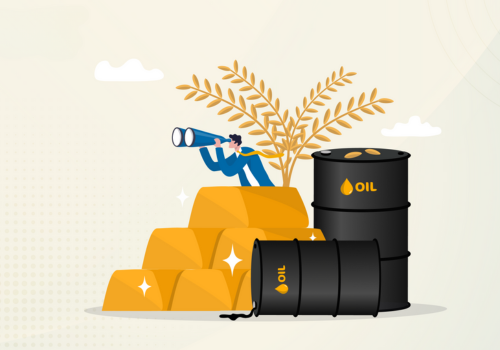
Trading is Not Gambling: Understanding the Art of Informed Investment;
In the financial world, trading and gambling are often mistakenly viewed as similar due to their inherent risks and the potential for significant gains or losses. However, the nature of trading and gambling is fundamentally different. This guide explores the essential distinctions between trading and gambling, highlighting why trading is a structured, strategic discipline rather than a game of chance.
The Fundamentals of Trading vs. Gambling.
Trading: A Strategic Approach.
Trading involves buying and selling financial assets such as stocks, bonds, or commodities to achieve profit. It is characterized by strategic planning, informed decision-making, and analytical techniques.
- Research and Analysis : Successful traders rely on comprehensive research and analysis. This includes studying market trends, financial statements, economic indicators, and technical charts. Traders use this data to make educated decisions about when to enter or exit positions. By analyzing patterns and historical data, traders aim to predict future movements and capitalize on market opportunities.
- Knowledge and Skill Development: Trading requires continuous learning and skill development. Traders stay updated on market news, economic reports, and technological advancements that impact the financial markets. They refine their strategies through practice and experience, applying their knowledge to make informed decisions.
Gambling: Chance and Luck
Gambling generally involves betting on uncertain outcomes where the result is primarily determined by chance. While some forms of gambling involve skill, the fundamental nature of gambling is based on randomness and luck.
- Chance-Based Outcomes:In gambling, the outcomes are often driven by random processes, such as the spin of a roulette wheel or the draw of a card. The player’s control over the outcome is limited, and luck plays a significant role in determining the result. While skill may influence certain games, such as poker, the odds are generally structured to favor the house or casino.
- Lack of Strategic Edge: : Although skill-based gambling games exist, most gambling activities are designed to favor the house or casino. The odds are structured so that, over time, the house has a statistical advantage. This means that even skilled gamblers face challenges in achieving consistent long-term profitability.
- Emotional Reaction: Gambling often involves emotional highs and lows, as players react to wins and losses with excitement or frustration. The lack of structured planning can lead to impulsive decisions and erratic betting behavior. This emotional volatility contrasts sharply with the disciplined approach required in trading.
Key Differences between Trading and Gambling
1. Information and Analysis vs. Random Chance
- Trading: Traders base their decisions on detailed analysis and research. They use economic data, market trends, and technical indicators to guide their trades. Their decisions are informed and calculated, aiming to exploit market inefficiencies and trends based on empirical data. This analytical approach allows traders to make decisions that are grounded in evidence rather than luck.
- Gambling: Gamblers often rely on chance and luck. While some gambling games involve skill, the primary determinant of outcomes in many gambling scenarios is randomness. The player’s decisions do not affect the odds of winning in most gambling activities, making luck a major factor.
2. Strategic Planning vs. Impulse.
- Trading: Successful traders follow a well-defined strategy. They plan their trades meticulously, setting specific goals and criteria for entering and exiting positions. This disciplined approach helps traders manage their trades effectively and avoid impulsive decisions. Strategic planning is key to achieving consistent results in trading.
- Gambling: Many gambling activities are driven by impulse and immediate reactions. Gamblers may place bets based on hunches or emotions rather than a structured plan. This lack of planning can lead to erratic betting and increased risk-taking, as decisions are often made on the spur of the moment.
3. Long-Term Strategies vs. Short-Term Bets.
- Trading:Traders often employ long-term strategies, focusing on building a portfolio that aims for sustainable growth. They may hold positions for extended periods, relying on market trends and data-driven strategies to achieve their investment goals. Long-term strategies are designed to capture market opportunities over time.
- Gambling: Gambling typically involves short-term bets with immediate outcomes. The focus is on the outcome of a single game or round, and the goal is often to win quickly. The short-term nature of gambling contrasts with the long-term approach of trading.
4. Emotional Control vs. Emotional Reaction.
- Trading: Successful traders maintain emotional control and follow their strategies diligently, even during periods of market volatility. They use analytical tools and data to guide their decisions, minimizing the impact of emotions on their trading activities.
- Gambling: Gambling often involves strong emotional reactions to wins and losses. The highs and lows of gambling can lead to impulsive decisions and increased risk-taking. Managing emotions is less structured compared to the disciplined approach required in trading.
Conclusion.
Understanding the differences between trading and gambling is crucial for anyone interested in financial markets. Trading is a structured and strategic activity, relying on research, analysis, and planning. It involves making informed decisions based on data and market trends, with a focus on long-term success. In contrast, gambling is largely driven by chance and luck, with outcomes determined by randomness. Recognizing these distinctions can help individuals approach trading with the right mindset and avoid the pitfalls associated with treating it as a game of chance. With a disciplined approach and a focus on informed decision-making, trading can be a rewarding and effective way to engage with financial markets.
Comments

Imran 01 Jan 2024
• "This guide effectively distinguishes trading from gambling by emphasizing the importance of informed investment strategies.






